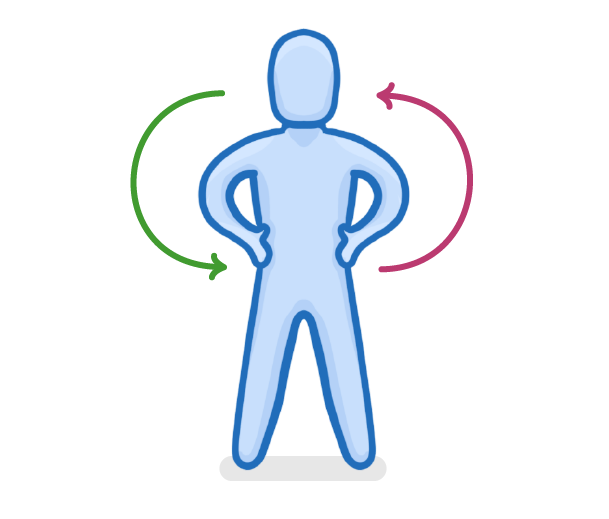Welcome to the Quiz!
This quiz contains 18 questions from a mix of 1 subtopics.
What is homeostasis?
Changing an internal environment within the body
Maintaining a constant external environment
Maintaining a stable internal environment despite changing conditions
|
Why does the body need to maintain optimal conditions?
For slow enzyme action and cell function
To kill pathogens
For optimal enzyme action and cell function
|
Which of these are considered 'internal conditions'?
(Select all that apply)
Blood glucose concentration
Room temperature
Blood pH
|
True or false? Homeostasis ensure internal conditions stay exactly constant, they don't fluctuate at all.
True
False
|
Which of these are considered 'external conditions'?
(Select all that apply)
Room temperature
Blood oxygen concentration
The amount of fluids you drink
|
effector / receptor
Homeostasis relies on automatic control systems.
In what order are signals passed along the control system?
➔ coordination centre ➔
|
What is the role of a receptor?
Carries out the response
Interprets changes and organises a response
Detects changes in the internal or external environment
|
What is the role of a coordination centre?
Carries out the response
Detects changes in the internal or external environment
Interprets changes and organises a response
|
Where are the coordination centres located in the body?
(Select all that apply)
Brain
Spinal cord
Muscles
Skin
|
Name the two types of effectors and state what they do.
|
Is the nervous system or the endocrine system faster acting?
Nervous
Endocrine
|
Which system acts more generally across the body, the nervous system or the endocrine system?
Endocrine
Nervous
|
Homeostasis relies on a system of , meaning whenever the levels of something get too high they're brought back down, and whenever the levels of something get too low, they're brought back up.
|
If our body temperature gets too high, negative feedback will cause our temperature to:
It won't do anything
Decrease back down
Increase further
|

How does negative feedback work?
Stops any changes from taking place
Any change in a system causes an action that amplifies the change
Any change in a system causes an action that reverses the change
|
What is the role of effectors?
Interpret changes and organises a response
Carry out the response
Detect changes in the internal or external environment
|
What type of feedback does homeostasis depend on?
No feedback
Negative feedback
Positive feedback
Inverse feedback
|
The body controlling water levels an example of what?
Adaptation
Homeostasis
Evolution
Osmosis
|